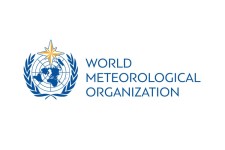World Meteorological Organization (WMO)

.
The World Meteorological Organization (WMO) is an intergovernmental organization with a membership of 193 Member States and Territories. It originated from the International Meteorological Organization (IMO), the roots of which were planted at the 1873 Vienna International Meteorological Congress. Established by the ratification of the WMO Convention on 23 March 1950, WMO became the specialised agency of the United Nations for meteorology (weather and climate), operational hydrology and related geophysical sciences a year later. The Secretariat, headquartered in Geneva, is headed by the Secretary-General. Its supreme body is the World Meteorological Congress.
As a specialized agency of the United Nations, WMO is dedicated to international cooperation and coordination on the state and behaviour of the Earth’s atmosphere, its interaction with the land and oceans, the weather and climate it produces, and the resulting distribution of water resources.
National Meteorological and Hydrological Services work around the clock to monitor Earth Systems and provide vital weather and climate information worldwide. Their early and reliable warnings of severe weather and fluctuations in air quality as well as of climate variability and change allow decision-makers, communities and individuals to be better prepared for weather and climate events. Their warnings help save life and property, protect resources and the environment and support socio-economic growth. WMO supports National Meteorological and Hydrological Services with this work and in meeting their international commitments in the areas of disaster risk reduction, climate change mitigation and adaptation, and sustainable development.
WMO has its headquarter in Geneva.
.
- United Nations
.
- Environmental health, one health, planetary_health
.
- Research
.
- Mainly international
.




